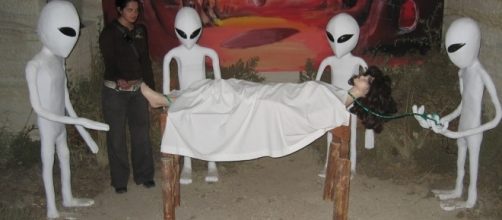Orator, statesman, historian, and so famous for his smoking habit that a style of cigar is named after him, Winston Churchill began a serious lay-study of science in 1896 while stationed in India when he read Darwin's "Origin of Species," and physics books.
WWII
During World War II it is well known that GB relied heavily on scientific breakthroughs such as radar and radical new decryption methods at (Bletchley Park) and Barnes Wallis’s inventions, but it is not as obvious just how scientific the Prime Minister’s outlook was. Reportedly when he favored the statistical analysis of U-boat activities as a method of finding and destroying them, he was once asked by “Bomber” Harris, “Are we fighting this war with weapons or slide rules?” Churchill replied, “Let's try the slide rule.”
But even if you knew about that obscure episode in history, did you realize Churchill wrote about hydrogen fusion in the 20’s?
He was also the first PM to have a science advisor. (An episode of Dr Who, "Victory Of The Daleks" alluded to this close tie between the wartime PM and science.)
Alien life
The newly discovered document was reported by the Director of the US National Churchill Museum in Fulton, Missouri.Timothy Riley can on an 11-page typewritten essay by Churchill titled, 'Are We Alone in Space?'
In the article, which may have been the draft of a piece he was going to submit to News of the World, the London Sunday newspaper, Mr Churchill wrote about the scientific possibility of finding extraterrestrial life.
He went back to it about the time the Soviets were launching Sputnik when he changed the title to 'Are We Alone in the Universe?' and updated it to include recent discoveries.
Although this article contributes nothing other than historical interest today, at the time Winston Churchill actually wrote about the possibility of alien life in a way that few of today’s astrobiologists would find any fault with. Among other things he pointed out that water was critical to all known life and probably any other life above the quasi-life of a virus, but even so, he didn’t rule out the possibility of some other liquid.
Churchill apparently didn’t consider the possibility that minerals could exhibit intelligence but those were the days before even transistors, let along today’s putative silicon life form, computers. He even recognised why water is so critical - it is the liquid which can dissolve almost every other substance at least in minute amounts.
Other planets
He also explored the need for planets to be in the right temperature zone (distance from the sun) and reasoned that there must be millions of other planets. But he didn't come to that as a guess, he actually subscribed to the then common belief of James Jeans (1917) that gas which forms planets is pulled from the close passage of a second star.
We know today that isn't true, but it was a common theory when Winston wrote and he wrote as a scientist because he pointed out this was only speculation, writing, “I am not sufficiently conceited to think that my sun is the only one with a family of planets.”
The future and former PM (he wrote this before and after WWII) also wrote about travel to the moon and Mars.
Winston voiced two conclusions in his essay. First that there was almost certainly intelligent life somewhere in some galaxy. But his second conclusion was, “I, for one, am not so immensely impressed by the success we are making of our civilization.”
The conclusion for all of us is that there is always more to learn about history and emphasizes the need to continue digging through the libraries and collections dedicated to the political and scientific leaders.

